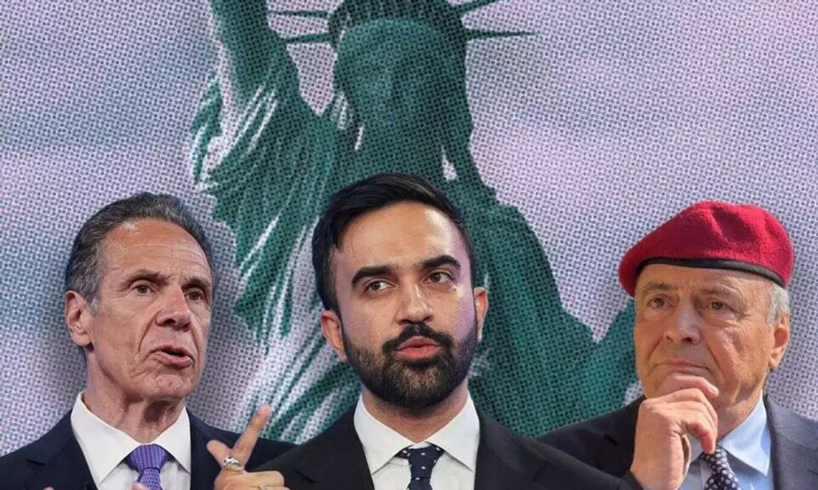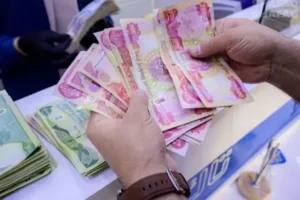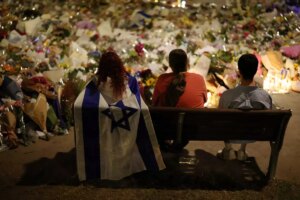
The New York City mayoral election is headed toward its decisive moment on Tuesday, with the city that never sleeps facing a choice among three candidates embodying completely different versions of New York. On one side stands Zohran Mamdani, a Shia Muslim of Ugandan-Indian descent and state assemblyman who has led the race while promising a radical revolution in the city and raising alarm in the Jewish community due to his harsh positions toward Israel.
Opposite him stands Andrew Cuomo, the former governor seeking a political comeback after his embarrassing 2021 resignation, claiming to represent “the old New York.” Between them stands Curtis Sliwa, founder of the Guardian Angels and the veteran Republican candidate who continues to champion a hard line against crime. All three are battling over New York’s identity as a city torn between ideologies, a new generation seeking change, and residents afraid to lose what remains of the city known as the “capital of the world.”
Today marks the final day of early voting in the New York City mayoral election. So far, more than 480,000 New Yorkers have cast their votes, according to the city’s Board of Elections data. The distribution of early voters may hint at current trends within the electorate, with the best indicator for predicting voting patterns being voter age. Cuomo has been growing stronger among older age groups, while Mamdani enjoys higher support among younger voters.
The New York Times estimated that although most early voters are over 45 – seemingly excellent news for Cuomo – the situation isn’t clear-cut. According to the data, the percentage of young voters in this year’s early voting is higher than expected in a mayoral election, resembling more closely the rate recorded in the 2024 presidential election.
A poll released yesterday by Atlas Intel polling firm puts Mamdani in the lead with 40.6% of voter support, while Cuomo trails with 34% – the smallest gap between the two candidates so far. The poll also gives Republican candidate Curtis Sliwa a generous result of 20% of the vote. In the case of a direct matchup between only Mamdani and Cuomo, Cuomo would win by roughly an 8% margin with a result of 50.2%.
Polls released Thursday indicated a larger gap favoring Mamdani. A Marist College poll gives Mamdani 48% compared to Cuomo’s 32% and Sliwa’s 16%, while an Emerson College poll gives Mamdani 51% compared to Cuomo’s 26% and Sliwa’s 21%.
Democratic mayoral nominee Zohran Mamdani greets the audience during the “Fighting Oligarchy Tour” with US Senator Bernie Sanders at Brooklyn College in New York, New York, USA, September 6, 2025. (Photo: Julius Constantine Motal/EPA)
Mamdani: from margins to center
Zohran Mamdani, 34, member of the New York State Assembly and the leading candidate for mayor, has quickly transformed from a marginal figure to a symbol of the young and combative left. He was born in Uganda to a Shia Muslim family of Indian descent. His parents are filmmaker Mira Nair and Mahmood Mamdani, an anthropology professor and colonialism researcher at Columbia University known for his anti-Israel positions.
Mamdani moved to New York at age seven and became a US citizen in 2018, though he still holds Ugandan citizenship. He is married to Rama Dwaji, a Texas-born artist of Syrian descent.
Before entering politics, Mamdani attempted a brief hip-hop music career under the stage name Young Cardamom, releasing a single called Nani and contributing music to Disney’s film Queen of Katwe (produced by his mother).
Video: Zohran Mamdani addresses voters in Arabic campaign ad. Credit: @ZohranKMamdani/X
After studying at Bowdoin, a private college in Maine, he began working in the Astoria community and was elected to the State Assembly in 2020.
Mamdani surprised the political establishment with a campaign largely based on social media. For example, he jumped into the freezing waters of Coney Island beaches in January, attempting to “demonstrate” his promise to freeze rent in the city. This strategy led him to defeat Andrew Cuomo in the Democratic primary, shocking the entire party.
Mamdani openly identifies with the Democratic Socialists of America (DSA) and presents a radical economic platform including a rent freeze, free city transit, free daycare, and a city-owned grocery network designed to reduce prices. Simultaneously, he supports raising taxes on the top income bracket and corporations, alongside tighter enforcement of fines and reducing no-bid contracts.
This is a plan raising concerns about business flight from the city, which would also require cooperation from New York State, which he currently lacks. In his campaign, Mamdani boasts of “unprecedented” volunteer scale and support from progressive figures like Jewish Senator Bernie Sanders and Congresswoman Alexandria Ocasio-Cortez (AOC).
Video: Leading NYC mayoral candidate Zohran Mamdani on whether Hamas should stay in power. Credit: Fox News
Recently, he has tried to soften his radical image. He has held quiet meetings with business executives and donors in recent months to show openness to cooperation. He has also changed direction on public safety issues. Instead of budget cuts for police under the “Defund The Police” slogan, he now proposes a community safety department that would handle some emergency service calls while maintaining a “critical role” for police.
What particularly worries New York Jews is his positions toward Israel. Already in his college days, he founded a chapter of Students for Justice in Palestine (SJP) and called for boycotting Israel. He consistently describes Israel’s actions in Gaza as “genocide” and “war crimes.” He claims the US is “funding genocide” and calls Israel an “apartheid state.”
Among the array of problematic messages he has delivered regarding Israel are canceling adoption of the IHRA Coalition’s antisemitism definition, which defines anti-Zionism and its expressions as forms of antisemitism, and refusing to walk back his call to “Globalize the Intifada” until he was finally forced to declare he would refrain from using it, supposedly after holding conversations with Jews in which he understood the concerns and aversion to the term in Jewish discourse.
Additionally, he declared that as mayor, he would enforce the International Criminal Court’s arrest warrant against Prime Minister Benjamin Netanyahu and refuse to recognize Israel’s right to exist as a Jewish state.
If elected, Mamdani signals he may take a series of steps against the city’s ties with Israel, including withdrawing city investments from Israeli bonds and companies, canceling joint forums and programs, and promoting an initiative called “Not On Our Dime” to remove tax-exempt status from nonprofits that donate to organizations operating in Judea and Samaria.
These statements have marked him as extremely hostile to Israel and insensitive to the wave of antisemitism in the city. He has been forced throughout the campaign to walk back several messages, promise he will act against antisemitism, increase investment in securing Jewish institutions, and promote anti-antisemitism programs. He has also appointed several Jewish staff members to senior positions in his campaign and reached out to anti-Zionist audiences like members of the Satmar Hasidic sect.
Independent candidate and former New York Governor Andrew Cuomo participates in the second New York City mayoral debate at LaGuardia Performing Arts Center at LaGuardia Community College in Long Island City, Queens, New York, on October 22, 2025 (Photo: Hiroko Masuike/AFP)
Cuomo: recalculating his route
Andrew Cuomo, 67 (nearly double Mamdani’s age), the former governor of New York State, is attempting to return to the public arena as a mayoral candidate. He was born in Queens to parents of Italian descent – the late Governor Mario Cuomo, a progressive Democrat who served as state governor for three terms (1983-1994) and was one of the prominent figures of the American left, and Matilda Cuomo. According to his campaign, he grew up “on values of equality, opportunity, and public service.”
After studying at Fordham University and Albany Law School, he began his career as his father’s campaign manager and as a prosecutor in Manhattan. He founded HELP USA, an organization that became a national network assisting the homeless, and married Kerry Kennedy, daughter of Senator Robert Kennedy, President John Kennedy’s brother, in 1990. The two divorced in 2005 and have three daughters.
He later served as Housing Secretary in the Clinton administration, was elected New York State Attorney General in 2006, and became the state governor in 2011. During his tenure as governor, Cuomo promoted same-sex marriage, raised the minimum wage, implemented a broad family leave law, and made massive infrastructure investments, including airport renovations and building new bridges. Simultaneously, he maintained a balanced budget and presented himself as a “pragmatic progressive” leader.
His 2021 resignation following sexual harassment allegations by 11 women, detailed in an investigative report by the state attorney general, left a stain on his record. Although no charges were filed against him, the report described a pattern of inappropriate behavior toward female employees.
His aspiration to return to political life hasn’t faded. As mentioned, Mamdani succeeded in surprisingly defeating him in the June primary, evidence of his controversial political status. Despite this, he decided to run as an independent candidate.
Former New York Governor Andrew Cuomo lays flowers in Yad Vashem, Jerusalem, Israel (Photo: EPA)
Cuomo is considered a well-known Israel supporter, and as governor, he signed an executive order against businesses that declared they would boycott Israel. During the war, he declared he would join a legal team established by attorney Alan Dershowitz to defend Netanyahu in The Hague. Despite continuing to attack Mamdani on his positions, wearing a hostage pin, and speaking out against antisemitism, he has expressed a more complex position.
But ahead of the election, in a New York Times interview, he shifted direction and distanced himself from Netanyahu. “I never stood with Bibi,” he said. Regarding the Gaza situation, he called the images “horrifying” and urged ending the war, saying, “New Yorkers see the bloodshed and are disturbed by it. This needs to end today.” These declarations may have been aimed at appealing to voters more critical of Israel.
In his current mayoral campaign, Cuomo stresses his management experience and warns that choosing his main opponent, Mamdani, would jeopardize the city as we know it.” His core promises include raising the minimum wage to $20 hourly, recruiting 5,000 more police officers, and constructing 500,000 new apartments.
He targets moderate voters and positions himself as the guardian of “the old New York,” a city of order, infrastructure, and political wisdom, in a final fight for his historical legacy.
New York City mayoral candidate Curtis Sliwa speaks to people at a voting location inside Trinity Lutheran Church, Oct. 28, 2025, in the Queens borough of New York (Frank Franklin II/AP)
Sliwa: the old-timer staying in the race
Curtis Sliwa, 71, is the Republican contender in the mayoral contest. He founded the Guardian Angels organization, a civilian volunteer group that started patrolling streets and subways in the 1970s. The group earned public recognition for its anti-crime work in neighborhoods and public transit during an era when the city’s crime rate was elevated, with members receiving karate training and citizens’ arrest instruction.
Since then, Sliwa has become a recognizable personality with a 30-year radio career, frequently notable for his blunt style, appearances holding a cat, and the red beret that became his trademark. He stayed true to his principles even after a 1992 Mafia assassination attempt, an incident he survived but necessitated surgeries.
In the 2021 election, Sliwa competed for New York mayor for the first time and lost to current Mayor Eric Adams. This year, he’s back in the contest with the same recognizable platform: bolstering police, maintaining Rikers Island as an operational detention facility, opposing tall construction, and backing animal rights.
Despite considerable pressure, Sliwa refuses to exit the race, fracturing the moderate vote across the city. Consequently, many see him as the deciding factor in the election: his unwillingness to withdraw expands the distance between Mamdani and Cuomo, and it’s entirely possible that eventually this will benefit Mamdani, as currently, based on polls, his victory looks like the most probable outcome.
The post The battle for New York: candidates, polls, and what's at stake appeared first on www.israelhayom.com.





